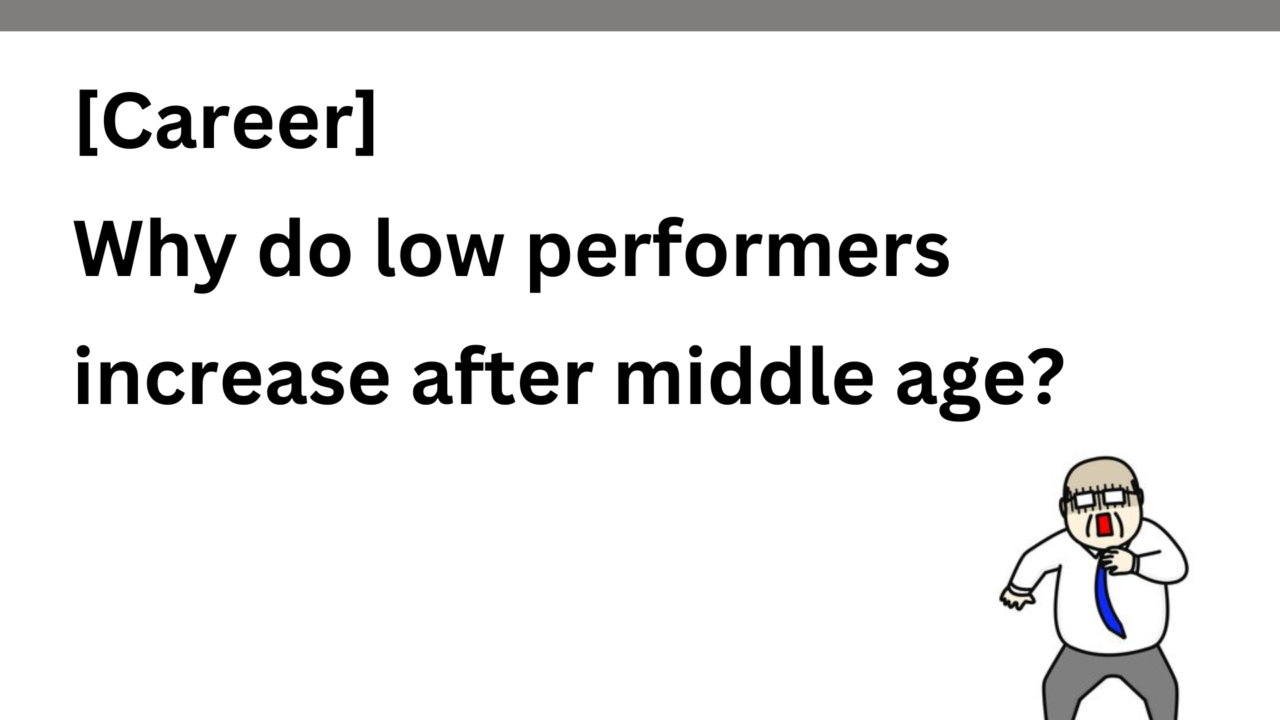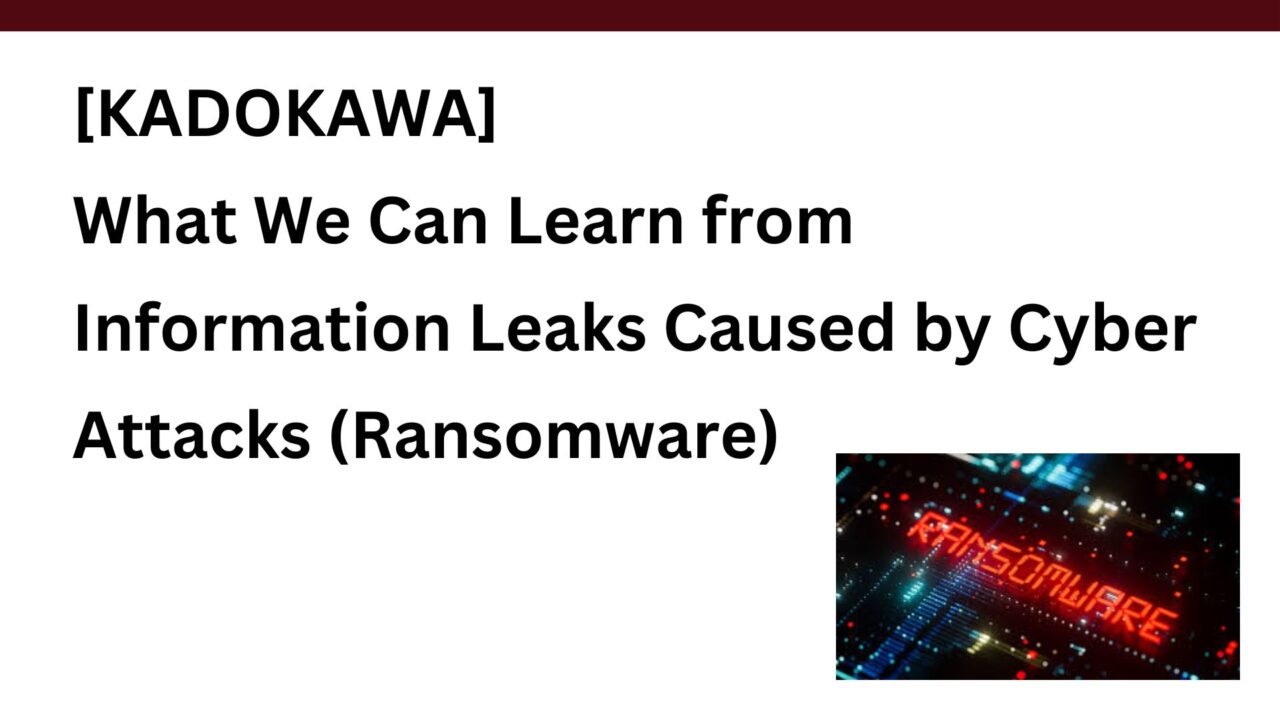Introduction.
I would like to focus on the emerging video media PIVOT, which featured the article “Secrets of the HR Gacha. Why Are Middle-Aged Low Performers on the Rise?” regarding.

What a sensational and shocking story, but I will try to summarize it.
This is what Kaoru Fujii, Senior Senior Research Fellow at the PERSOL Research Institute, has been advocating. Mr. Fujii has published a book titled “Secrets of Personnel Gacha: Assignments, Transfers, and Promotions.
Why middle performers are more likely to be left alone
Here, middle performers are the “average 60%” who belong to the middle of the “Rule of 262,” or the “excellent 20%,” the “average 60%,” and the “low contributing 20%” that make up any organization or organization.
High Performers: Proactive Placement
First, with regard to the excellent top 20%, there are two further groups within that group.
- Next generation management personnel (high potential personnel): 1% of the total. Excellent level among department managers
- Other excellent layers: Ordinary department heads
Since how to find and nurture high-potential next-generation management talent is a top priority for every company, both the human resources and business divisions are paying close attention to this outstanding group by periodically rotating them on a company-wide basis.
However, many of these talented people are also actively changing jobs outside the company in search of better growth opportunities.
So, for example, even if a global company has trained their next generation management talent through a 3-4 year job rotation over a 6-month period in one department, they often run away afterwards saying, “Thank you very much, I’m going to change jobs to XXX company. This can be a source of concern for HR departments in terms of how to retain them.
Low Performers: Finding New Matching Partners
Those who belong to the so-called lower 20%.
Japan is a country with strong restrictions on termination of employment, so it is not possible to fire an employee immediately because of poor job performance.
Therefore, the department to which the employee belongs asks the HR department, “Since my performance is not good in my department, would you consider transferring me to another department? The HR department will then look for a new match, just like high performers.
Middle performers: functioning as a force to be reckoned with.
In fact, more than 60% of the 2:6:2, 80-90% belong to this group, but they are well-functioning people.
If we use a relative evaluation, they are “standard or average,” but if we use an absolute evaluation, they are “people who have almost achieved their annual work goals and have no problems in terms of competitiveness.
It may not look bad at first glance, but that is why it is easy to be overlooked by the business sector as a target for development.
- Business units and HR departments have their hands full training high performers and reassigning low performers
- Middle performers are not subject to the same level of training as high performers, who are actively transferred to new departments to gain new experience and develop into the next generation of management talent. Therefore, it is easy for the business unit to simply say, “You’re doing a good job, but nothing too good or too bad.
This is why middle performers tend to be excluded from transfer consideration. In particular, we are referring here to mid-30s to mid-40s. This is because both the HR department and the business unit are looking at them to some extent during their first 10 years with the company.
Nevertheless, “as long as they are functioning as a force, isn’t that a problem?” but this is a different story when they reach middle age, he said. Why?
Why do middle performers become low performers after mid-40s?
There are two main reasons for this.
- Decline in energy, stamina, and judgment
- Because of the seniority system, the salary will not be commensurate with the expectations.
Decline in energy, stamina, and judgment
The first, “decline in energy, stamina, and judgment,” is a blunt statement, but I believe it can be further divided into two categories.
The first is fluid intelligence (innate intelligence. The first is the general human phenomenon that fluid intelligence (innate intelligence, or “grounded intelligence”) begins to decline rapidly in one’s 30s and 40s. The prefrontal cortex, which is responsible for reasoning, flexible thinking, and the ability to solve novel problems, declines after 40. This is inevitable. The details are described in the following article.
In this regard, we must move into the battle to actively utilize crystalline intelligence (knowledge and wisdom from past experience).

Another thing, and I think this is unique to middle performers, is that they tend to be exempt from transfers, so they end up doing the same kind of work in the same department for almost 10 years. This naturally leads to a decline in the desire to grow because they are doing the same thing all the time, and if there is little change, it is inevitable that their ability to think outside the box will wane.
Seniority system makes the salary not commensurate with the expectations.
Because of Japan’s seniority system, the same middle performer is often paid more in his or her mid-40s than in his or her mid-30s.
Since there are no particular problems in terms of competitiveness, many of them will have an average of about 4% per year in salary increases each year in their annual salary assessment. In this way, the expectations of those around them on a salary basis would increase progressively.
In their mid-30s, the expectations of those around them and their performance were tonally matched, but in their mid-40s, only the expectations are considered to have increased in terms of salary, while performance is considered to have declined relative to the same tasks because they are repeating them.
As harsh as it sounds, this is why we argue that middle performers become low performers in their mid-40s and above.
The company then becomes increasingly concerned about those who have become low performers in their mid-40s and beyond, and they are targeted for release through early retirement recommendations. The company is unaware of this, and it appears as if a problem has suddenly emerged, because the previous 10 years seemed to have been uneventful as middle performers in terms of workforce performance.
In a seniority-based system, these middle performers typically become section managers in their 40s, but only 20% of them make it from section manager to department head, and since they are not good enough to become department heads, they will spend the remaining 20 years of their lives as section managers.
As middle managers, they will spend most of their time doing people management (1-on-1, etc.), paperwork, and other management routines, and will reach retirement age without having developed their own expertise. This is a typical future.
So, what do middle performers currently in their early to mid 30s (those who are beginning to feel that they will never be able to reach managerial positions) need to do to prepare for the coming mid 40s and beyond in terms of career development?
Develop multiple specialties and seek out specialists
Develop a specialty that is different from your current specialty.
From what I’ve heard so far, the competition is fierce and tough for middle performers to get into management positions within the company.
Therefore, one solution is to acquire a specialty and seek a specialist.
Specifically, when there are opportunities for raising hands to take on new projects within the company, they will actively participate and learn new skills, etc.
Incidentally, one might acquire one specialty and live there (i.e., job-type), but the job-type is not all good. In Germany, for example, where the job-type is adopted, those who fail to reach management positions are paid almost at the top of their salary in their 40s. This is not surprising since they work for the same number of people. In Japan, the seniority system is still in place, so salaries may increase gradually, but this is not the case with the job-based system.
This is discussed in more detail in the article below on the merits and demerits of job and membership types.
Therefore, we need to adopt a strategy of deepening the expertise that we are acquiring in the department to which we belong now, while also seeking other specialties and acquiring not one but multiple specialties.
The fashionable reskilling, for example, would fall into this context. In most cases, companies do not always provide reskilling opportunities (they are not yet that well-developed or cannot afford to do so), so it may be necessary to take time outside the company to learn (programming, video editing, finance and accounting, marketing, etc.).
Ultimately, it comes down to the question of curiosity, whether one can actively learn different fields away from the safe zone of one’s own field of expertise. I personally think that it is, and so on,
Know early on whether you are a player or manager oriented.
There is also a difference between a player and a manager, and the roles required are different (in the case of a manager, it is necessary to switch from the individual optimization of a player to a mindset that thinks about the overall optimization. In other words, it is like going from being a performer to being a conductor ), and there is also a certain suitability for the role. There are cases where people who have achieved great results as players and become managers are not suited to management and return (or are forced to return) to being players themselves.
Therefore, it is better to be actively involved in project management at an early stage, even in a small group, if the opportunity to manage a project arises, even before you become a manager. By doing so, you will know in advance whether you are suited to be a player or a manager, and whether you like it or not.
If you are a middle performer who will not be in a managerial position (and you do not expect to be in a managerial position at the company) and management is not your forte, you may want to turn your attention to developing your expertise as a player and seek to learn another specialized skill or two in an adjacent or completely different area in addition to your current job expertise. In addition to the current business expertise, it is also possible to seek a path to learn one or two more specialized skills in an adjoining area or a completely different field. This is also a difficult path.
The importance of the mindset of using the company
I also personally think that a “use the company” mindset is important.
We should spend as much time as possible developing skills that can be generalized from the perspective of “can the work I am doing now be generalized rather than unique to the company?”
Specifically, “I can describe it in my resume when changing jobs, or explain it to the interviewer as a generic skill or experience during the interview. You can also look at your current work at the company from a third-party perspective, such as “skills that I can offer to clients when I become independent as a freelancer. Then, think about proactively cutting jobs that do not have general-purpose skills or skills that can only be used at the company, or shortening the work hours, or structuring the work in such a way that it can be completed in a shorter period of time.
If you work with the awareness that you can leave the company at any time, rather than clinging to the company, and you work while envisioning the time when you change jobs or become independent, your performance at the company will ultimately be improved.
For example, when I was doing web marketing,
If you study SQL statements and become able to analyze data with BigQuery yourself, you will be able to do more advanced data analysis than those who just do web marketing, which may be an advantage when you change jobs. If you can analyze data with BigQuery, you may have an advantage over those who are just web marketers. I’ll ask an engineer to give me a lecture on how to do the analysis.”
This will change the behavior of the company. So, it is conceivable that actually acquiring analysis skills with BigQuery will reduce some of the workload for engineers, which will be evaluated, which in turn will improve their reputation within the company.
If you were an engineer.
‘I’ve never done this before, but there’s a pretty heavy task scheduled, a Rails version upgrade. It sounds like a lot of work, but if I take on this challenge, Rails version upgrades are almost always encountered on the back-end side of companies that provide web services, so it’s very versatile. Let’s give ourselves a hand and go for it and take on the challenge.”
This is the behavior of the company.
However, the two major measures I just mentioned
In addition to the company’s regular work, use the gap time to develop other expertise OR actively involve yourself in new projects.
Focus on developing generalized business skills with the mindset of using the company to its fullest (being able to recognize what makes a skill generalized in the first place)
The paradox is that those who are able to do the following are not stopping at middle performers in the first place, and are probably already high performers,
summary
I felt that it is terrible that middle performers have no problems and therefore are left alone by the company for better or worse until their mid-30s to mid-40s when they are in the prime of their working lives, and when they finally reach their mid-40s, they are treated as low performers and subject to release, but on the other hand, if they know such a future is waiting for them 10 years from now, However, if they knew that such a future would be waiting for them in 10 years, they would have a sense of crisis and could take measures in advance from their early thirties.
It was a very good dialogue video.






